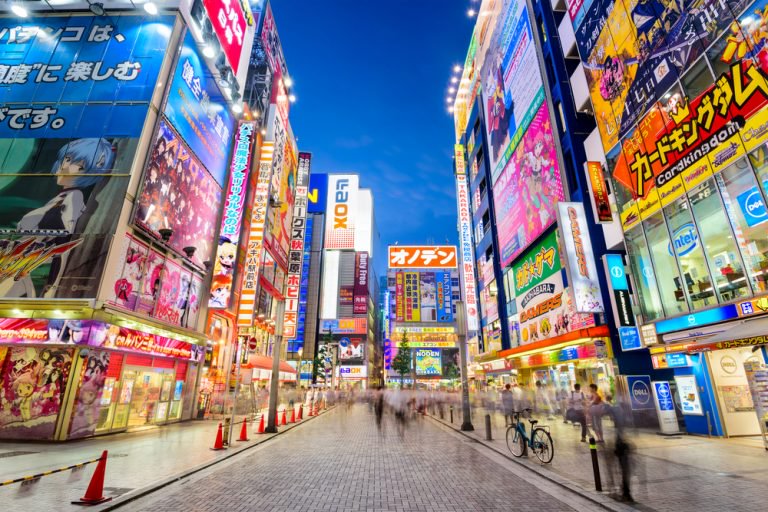Japan Teaches Western Governments a Lesson in Cryptocurrency Regulation
source: Bitcoin News
2017. Nov. 13. 10:30

Bitcoin is a phenomenon that provokes conflicting emotions in people. Fear. Excitement. Elation. Doubt. For governments tasked with regulating every new thing that comes along, be it the motor car or the internet, bitcoin presents a conundrum. How to regulate such a seemingly unregulatable creation? While many western governments have reached for the button marked “Fear”, Japan has taken the reverse approach.
Also read: Japanese City Attracts Cryptocurrency Miners with Abundant Renewable Energy
Land of the Rising Coin
Bitcoin has been an officially legal payment method in Japan since April, when 4,500 stores began accepting the cryptocurrency, and leading financial newspaper, the Nikkei, tips that figure to increase five-fold by the end of the year. Japanese shoppers can spend bitcoin in a range of stores including electronics giant Bic Cam and bitcoin signs are displayed prominently, helping to raise awareness. BTMs – ATMs that exchange fiat for bitcoin – are scattered throughout the country, and there’s even the ability to pay utility bills complete with a special bitcoin discount via Remixpoint.
Following the Mt Gox collapse, in which the country’s (and indeed the world’s) largest bitcoin exchange liquidated, losing 850,000 bitcoins, Japanese regulators stepped in. Rather than try to stem the use of cryptocurrency, they enacted regulations which mandated exchanges to maintain capital reserves, keep customer funds separate, and implement KYC procedures. Meanwhile, many western governments have dithered over cryptocurrency regulation.
Regulators Mount Up
This week, Donald Trump’s treasury secretary issued his first public comments about bitcoin – and they weren’t exactly glowing. His primary concern was with ensuring that bitcoin couldn’t be used “for illicit activities”. He also invoked the usual canards that
Encryption is bad, m’kay?government officials are prone to uttering in the same breath, citing money laundering, terrorists, and the dark web. The only box the treasury secretary forgot to tick off was the one marked “child pornography”.
These accusations aren’t just limited to bitcoin of course. Cryptography as a whole is the bugbear of many western governments, with British and US leaders in particular expressing frustration that backdoors can’t be built into encrypted messaging platforms such as Whatsapp. Bitcoin is mercifully free from centralized attempts at meddling with code, but that hasn’t prevented governments from restricting entry and exit points from the fiat world. Officials haven’t lain the banhammer on bitcoin, but they’ve done little to support it.
Opportunity or Threat?
Japan is a tech-savvy nation whose elected officials have a better appreciation of the transformative power of emerging technologies than most. It follows that the more digitally-inclined countries should be among the first to embrace cryptocurrency. In Europe, Estonia, with its e-Residency digital passports, is another country that’s been positive towards cryptocurrency.
“Bitcoin regulation” can mean very different things in different countries. In Japan it means taking measures to safeguard citizens whilst encouraging the responsible use of bitcoin and enabling crypto companies to get on with business. In other developed nations, however, “bitcoin regulation” is a euphemism for “anti-money laundering”.
Thumbs Down From Down Under
“Australia follows Japan in move to regulate bitcoin” ran the headline in the Financial Times. It all sounds so promising, but delve into the story and it becomes evident that Australia is not about to start rolling out BTMs and putting up bitcoin signs in its retail stores.
“Stopping the movement of money to criminals and terrorists is a vital part of our national security defences and we expect regulated businesses in Australia to comply with our comprehensive regime,” states the country’s justice minister in Orwellian terms.
Japan hasn’t been shy when it comes to weighing in on bitcoin, as its stringent KYC regulations and new ICO guidelines show. But it’s tempered this with an open invitation to exchange owners, entrepreneurs, crypto pioneers, and bitcoin enthusiasts that says “We’re open for business”. Western governments could learn a lot.
What do you think are the most bitcoin-friendly countries in the world? Let us know in the comments section below.
Images courtesy of Shutterstock, and Whatsapp.
Need to calculate your bitcoin holdings? Check our tools section.
The post Japan Teaches Western Governments a Lesson in Cryptocurrency Regulation appeared first on Bitcoin News.





